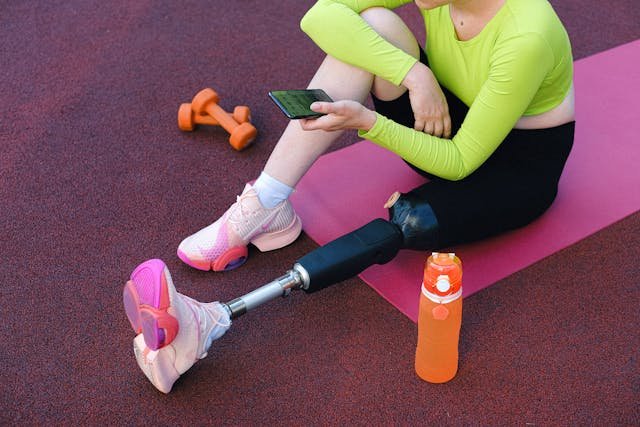The world of assistive technology is changing fast. In the past, people with disabilities had to rely on expensive, limited, and often outdated solutions. But now, a wave of innovative startups is transforming the assistive tech industry, making devices smarter, more affordable, and accessible to more people than ever before.
Between 2025 and 2030, assistive tech startups will play a crucial role in reshaping mobility aids, prosthetics, smart wearables, AI-driven accessibility tools, and brain-computer interfaces. These startups are not just improving existing solutions—they are creating new possibilities for people with disabilities, helping them lead more independent, productive, and fulfilling lives.
At Robobionics, we believe in supporting and learning from these innovations, ensuring that people with disabilities get the best technology available. In this article, we explore how assistive tech startups are driving the future of disability solutions, making a real impact on people’s lives across the world.
1. The Rise of AI-Powered Accessibility Tools

Artificial intelligence is changing how assistive devices work, making them faster, smarter, and more intuitive. Startups are developing AI-driven speech recognition, text-to-speech tools, and real-time sign language translation to help people with disabilities communicate more effectively and navigate the digital world with ease.
One major breakthrough is AI-powered visual recognition for visually impaired users. Smart devices, connected to AI-based object detection and navigation systems, can now describe surroundings, identify objects, and read out digital or printed text in real-time. This has made everyday tasks like reading signs, recognizing faces, and moving through crowded places much easier.
By 2030, AI-driven accessibility solutions will become a standard part of assistive technology, making communication, mobility, and independent living easier for millions of people worldwide. Startups in this space will continue to push boundaries, ensuring that AI-powered tools are affordable and available to all.
2. Smart Prosthetics: The Role of Startups in Affordable Bionic Limbs
Prosthetic technology has come a long way, but high costs and limited access have kept many people from getting the prosthetic limbs they need. Startups are working on low-cost, 3D-printed prosthetic limbs, smart bionics with AI-driven movement, and brain-controlled prosthetics, making them more functional and widely accessible.
One of the biggest advancements is AI-powered adaptive prosthetics. These prosthetics learn how users move and adjust in real-time, improving balance, grip, and even sensory feedback. Some startups are also integrating haptic technology to bring a sense of touch back to prosthetic users, helping them feel textures, temperatures, and pressure.
By 2030, smart prosthetics will be customizable, affordable, and more responsive than ever before, giving amputees better mobility, comfort, and independence. Startups in this field will continue to push innovation forward, ensuring that no one is left behind due to cost or technology limitations.
3. Brain-Computer Interfaces: The Next Step in Assistive Tech
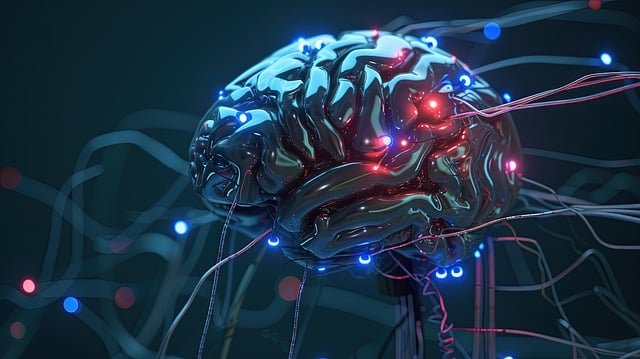
Brain-computer interfaces (BCIs) have the potential to revolutionize assistive technology, allowing people with disabilities to control devices with their thoughts. Startups are making huge progress in neural integration, helping individuals with paralysis, limb loss, and communication challenges regain control over their environments.
The latest BCI systems use non-invasive headsets or implanted neural chips to translate brain signals into real-time commands for prosthetic limbs, wheelchairs, and even digital devices. This means that people who once relied on caregivers for everyday tasks can now use technology independently just by thinking about their actions.
By 2030, brain-controlled assistive devices will be commercially available, allowing individuals to type, move, and interact with smart devices effortlessly. These innovations will dramatically improve quality of life, giving people with disabilities greater freedom and independence than ever before.
4. 3D Printing: Making Assistive Devices Affordable and Customizable
3D printing has transformed assistive technology, allowing startups to create low-cost, fully customized prosthetic limbs, orthotic supports, and mobility aids. Unlike traditional methods, which are slow and expensive, 3D printing makes it possible to produce personalized devices in a matter of hours.
Startups are using biocompatible materials and AI-driven design software to create prosthetics that are lighter, stronger, and more adaptable. This is particularly important for children, who outgrow prosthetic limbs quickly, as well as for people in developing countries, where traditional prosthetics are too expensive or difficult to access.
By 2030, 3D printing will make high-quality assistive devices available to everyone, regardless of their income or location, ensuring that no one is denied mobility or independence because of cost.
5. Smart Wearables: How Startups Are Enhancing Daily Living
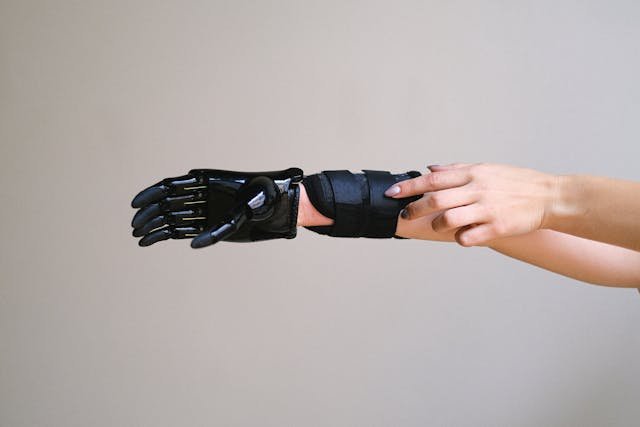
Wearable assistive technology is becoming smarter and more effective thanks to startups integrating AI, sensors, and real-time health monitoring into everyday devices. From smart gloves for people with motor impairments to AI-powered hearing aids that adjust sound levels based on the environment, wearables are revolutionizing accessibility.
One of the most exciting innovations is exoskeleton suits, which allow individuals with spinal cord injuries or mobility impairments to walk again. Startups are developing lighter, more energy-efficient exoskeletons that provide support for people with limited mobility, helping them regain independence.
By 2030, smart wearables will be fully integrated into daily life, offering real-time health tracking, personalized assistance, and AI-driven support for people with disabilities.
6. The Role of Startups in Expanding Accessibility to Rural Areas
One of the biggest challenges in assistive technology is reaching people in remote and underserved areas. Startups are solving this by developing telehealth solutions, remote prosthetic fitting services, and digital assistive training programs, ensuring that people with disabilities get the help they need no matter where they live.
With mobile health clinics, AI-powered diagnostics, and cloud-connected assistive devices, startups are helping people in low-income and rural communities access high-quality healthcare and disability support services. Some companies are even using drones and automated delivery networks to bring prosthetic limbs and mobility aids to isolated areas.
By 2030, assistive technology will be more globally accessible, ensuring that even the most remote communities have access to the latest innovations.
7. The Impact of AI-Powered Virtual Assistants on Disability Support

Artificial intelligence is playing a major role in assistive technology, and one of the most impactful developments is AI-powered virtual assistants designed specifically for individuals with disabilities. These assistants go beyond traditional voice-controlled devices like Alexa or Siri, offering personalized accessibility features tailored to the needs of each user.
Startups are developing AI-driven assistants that can help with daily activities, schedule medical appointments, provide reminders for medications, and even interpret sign language in real time. For individuals with limited mobility, these AI assistants can integrate with smart home systems, adjusting lighting, temperature, and security settings with simple voice or thought commands.
By 2030, AI-powered virtual assistants will become essential accessibility tools, helping people with disabilities navigate the world more independently, communicate more effectively, and manage their daily lives with greater ease.
8. How Robotics is Transforming Personal Mobility
Robotics is rapidly changing personal mobility solutions, making wheelchairs, walkers, and other mobility aids smarter, more efficient, and highly customizable. Assistive tech startups are leading the way in developing robotic wheelchairs, autonomous mobility devices, and AI-powered exoskeletons that can adapt to user needs and environmental conditions.
One exciting innovation is the development of self-balancing robotic wheelchairs that can navigate stairs, rough terrain, and tight spaces without assistance. These AI-powered wheelchairs use computer vision and machine learning to analyze surroundings and adjust movement accordingly, allowing users to move independently in areas that were previously inaccessible.
By 2030, robotic mobility aids will provide unprecedented freedom and independence for individuals with mobility impairments, allowing them to travel farther, access more places, and interact with the world in ways never before possible.
9. The Role of Blockchain in Assistive Tech Accessibility and Data Security
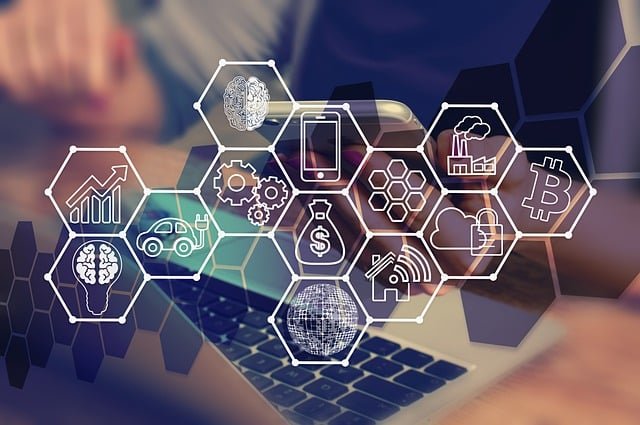
As assistive technology becomes more connected and data-driven, ensuring security and accessibility is critical. Blockchain technology is emerging as a solution to protect user data, enhance accessibility, and improve trust in assistive tech solutions.
Startups are leveraging blockchain-based identity management systems to help individuals with disabilities securely store and share medical records, prosthetic calibration data, and personalized accessibility settings. This technology ensures that important health and assistive device information is available whenever and wherever users need it—without relying on fragmented medical databases.
By 2030, blockchain will improve the reliability, security, and accessibility of assistive technologies, allowing individuals to retain full control over their data and healthcare needs while ensuring seamless integration across multiple devices and service providers.
10. Assistive Tech Startups and the Future of Inclusive Smart Cities
As cities become smarter and more technologically advanced, assistive tech startups are ensuring that urban environments are more accessible for people with disabilities. From AI-powered crosswalks to voice-activated public transit systems, these innovations are making everyday mobility safer, more efficient, and more inclusive.
One of the most promising developments is real-time accessibility mapping, where AI-driven apps provide up-to-date information on wheelchair-friendly routes, accessible buildings, and nearby assistive services. Additionally, smart cities are beginning to integrate sensor-based accessibility features, such as automated ramps, responsive traffic signals, and digital wayfinding tools for visually impaired individuals.
By 2030, smart cities will be designed with accessibility in mind, ensuring that people with disabilities can navigate urban spaces independently and confidently. Assistive tech startups will continue to play a key role in shaping these innovations, ensuring that no one is left behind in the digital transformation of modern cities.
11. The Role of Governments and Policy in Supporting Assistive Tech Startups
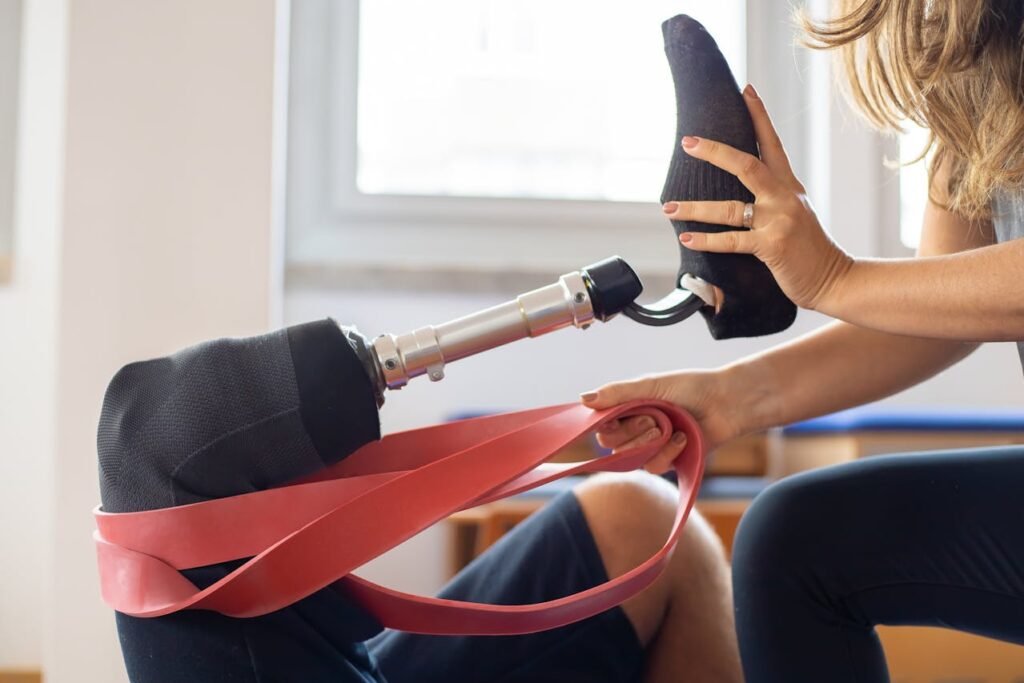
While startups are driving groundbreaking innovation, government support is essential for scaling these technologies and making them widely accessible. Many countries are recognizing the importance of assistive tech and are investing in policies that encourage innovation, lower costs, and provide funding for disability-focused startups.
One of the most effective ways governments are supporting assistive technology is by offering subsidies, tax breaks, and grants to companies developing affordable and scalable disability solutions. Additionally, regulatory frameworks are being updated to ensure that assistive devices meet safety, ethical, and accessibility standards while remaining cost-effective for users.
By 2030, government-backed initiatives will help bring assistive technology to more people worldwide, ensuring that innovation is not limited by economic barriers and that individuals with disabilities have access to the best solutions available.
12. How Telemedicine is Expanding Healthcare Access for People with Disabilities
Many people with disabilities face barriers to accessing healthcare, whether due to limited mobility, long distances to medical centers, or high costs. Assistive tech startups are solving this problem by developing telemedicine solutions tailored specifically for individuals with disabilities.
With AI-driven remote diagnostics, virtual rehabilitation programs, and wearable health monitors, individuals can receive medical care from home without needing frequent clinic visits. Startups are also creating specialized telehealth platforms that allow doctors to remotely adjust prosthetics, monitor assistive devices, and provide therapy through digital channels.
By 2030, telemedicine will become a standard part of healthcare for people with disabilities, making it easier, faster, and more affordable to receive medical support and assistive device maintenance from anywhere in the world.
13. Assistive Tech Startups and the Global Push for Disability Inclusion
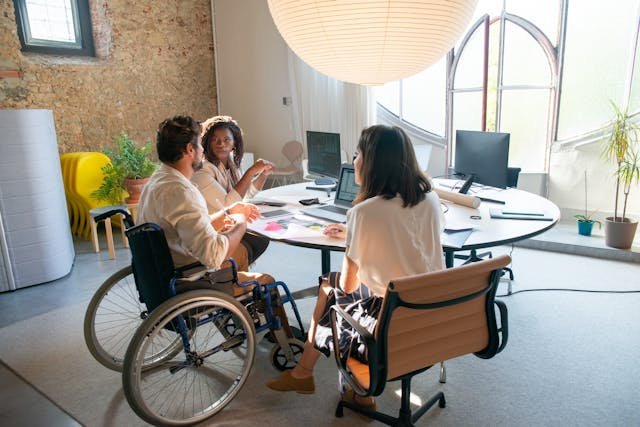
The rise of assistive technology is not just about innovation—it’s about inclusion. Startups are working closely with corporations, schools, and public institutions to ensure that people with disabilities have equal opportunities in education, employment, and social engagement.
One of the biggest advancements is inclusive workplace technology, where startups are developing AI-powered accessibility tools that help individuals with disabilities succeed in professional environments. From speech-to-text systems for hearing-impaired workers to AI-assisted office equipment for individuals with mobility challenges, these solutions are reshaping the modern workplace.
By 2030, disability inclusion will be a global priority, with assistive tech startups playing a central role in ensuring equal access to jobs, education, and public spaces. The future of accessibility is not just about helping individuals—it’s about creating a world where disability is no longer a barrier to success.
Final Thoughts: How Startups Are Driving a New Era of Disability Innovation
Assistive technology startups are changing the world, making disability solutions smarter, cheaper, and more widely available. From AI-driven accessibility tools to brain-controlled prosthetics and 3D-printed mobility aids, these companies are leading a new wave of innovation that will shape the future between 2025 and 2030.
As these startups continue to grow, more people with disabilities will have access to cutting-edge solutions that improve their mobility, independence, and quality of life. The future of disability technology is not just about helping people function—it’s about empowering them to live life without limits.
At Robobionics, we are proud to be part of this movement, ensuring that the latest assistive technology innovations reach the people who need them most. If you want to learn more about the future of assistive tech solutions, book a free demo with Robobionics today and explore how cutting-edge startups are reshaping accessibility and independence worldwide.



